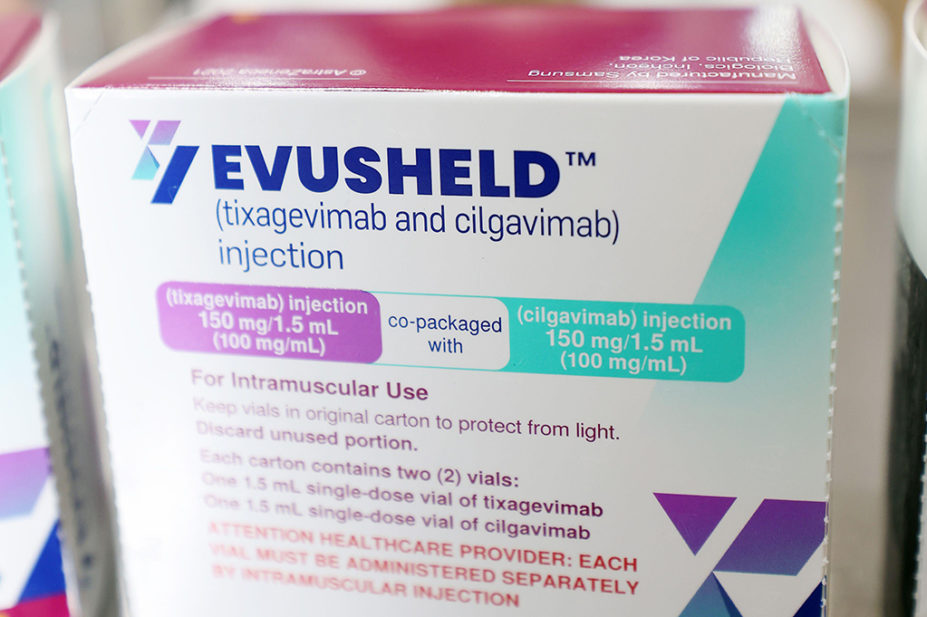
Newscom / Alamy Stock Photo
The monoclonal antibody cocktail Evusheld (tixagevimab + cilgavimab; AstraZeneca) is effective in preventing COVID-19 infection and illness for immunocompromised people, suggest results of a systematic review.
The review also found that Evusheld is effective against the Omicron variant of COVID-19; however, the data have yet to be published in a peer-reviewed journal.
Evusheld is licensed by the Medicines and Healthcare products Regulatory Agency for the prevention of COVID-19 infection in adults who are unlikely to mount an immune response from COVID-19 vaccination, or for whom vaccination is not recommended.
In August 2022, the UK government confirmed it would not be buying any doses of the AstraZeneca treatment, citing a lack of data on the level of protection it provides against the Omicron variant.
A systematic review of studies from January 2021 to October 2022 — carried out by a team of researchers, including one from the UK Health Security Agency, and published as a pre-print on 7 November 2022 — looked at data from 17 eligible studies involving 24,773 immunocompromised participants, including the PROVENT phase III study, which led to the drug being licensed.
The review looked primarily at data on breakthrough COVID-19 infections after drug administration, as well as hospitalisation, intensive care admission and COVID-19-specific death.
It showed that Evusheld was 40% effective in preventing infection (confidence interval [CI] 29.8 to 49.7), based on six studies; 69% effective in preventing hospitalisation (CI 50.8 to 81.6), based on six studies; 88% effective in preventing intensive care unit admission (CI 47.1 to 98.7), based on two studies; and 86% effective in preventing COVID-19-specific death (CI 6.2 to 99.7) based on four studies.
The researchers said that most of the studies carried out after the original PROVENT trial were during periods when the Omicron variants were circulating.
“This systematic review has illustrated that there is now a growing body of real-world evidence validating the original phase 3 study as to the clinical effectiveness of tixagevimab/cilgavimab and demonstrating effectiveness in the Omicron era.”
The researchers added that it is “critically important” that bigger and better controlled studies are carried out to protect people at risk through their immunocompromised status.
Commenting on the review, Kovilen Sawmynaden, senior principal scientist at the medical research charity LifeArc, said the new data should hasten the NHS decision about funding Evusheld.
“In light of this review, it would be great if they could bring it forward a little bit. I think some of their initial concerns might be mitigated,” he said.
“The [new] real-world data suggests it is Omicron effective.”
The National Institute for Health and Care Excellence (NICE) is currently reviewing the clinical and cost effectiveness of Evusheld in the UK. The expected date for its decision is 31 May 2023.
Publications relating to the drug are also being monitored by NICE’s RAPID-C19 group, which will pass new evidence to the appraisal group for consideration.


